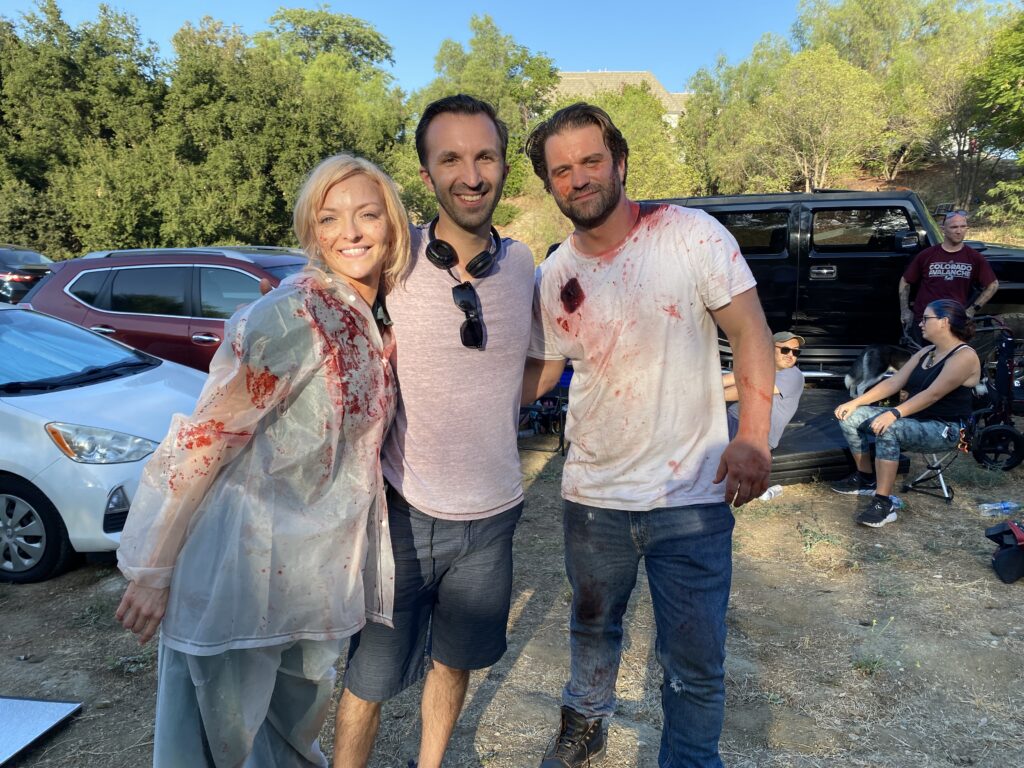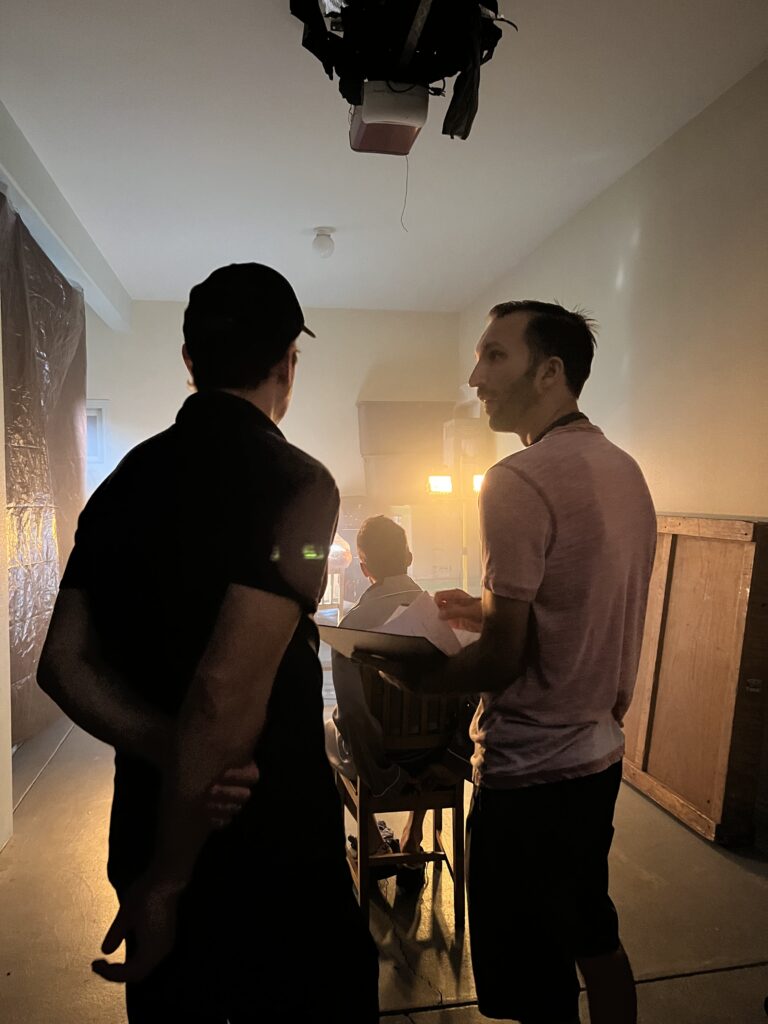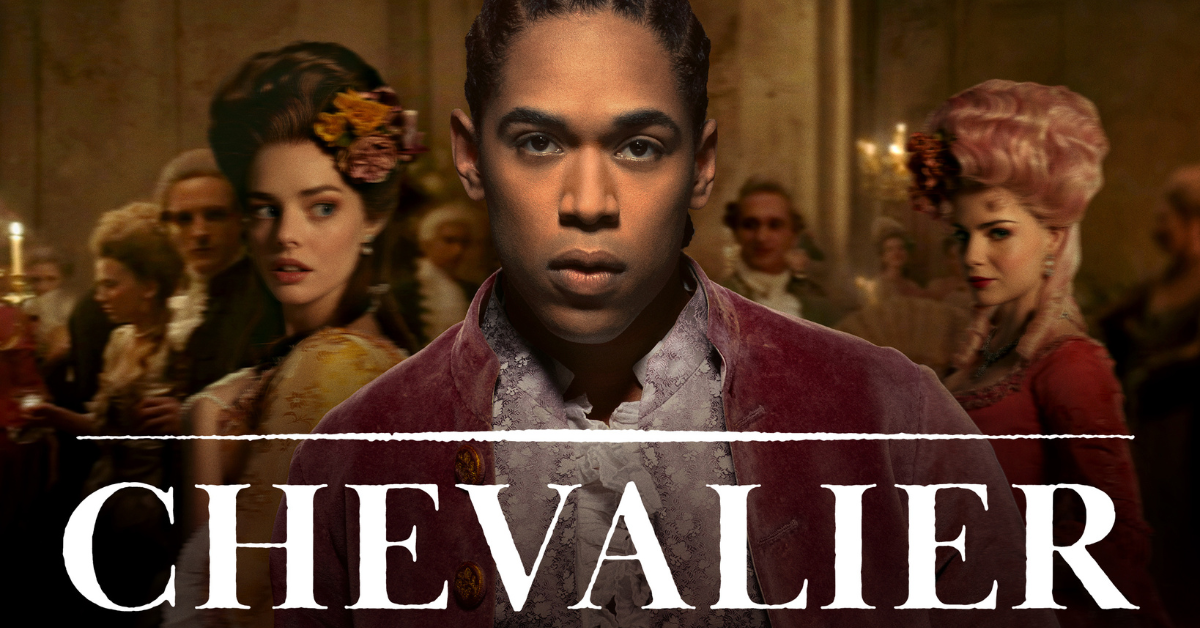Michael Day’s Directorial Debut Clawfoot: A Dark Comedy Thriller with Hitchcockian Suspense and Timely Themes
In a time when fresh perspectives are the driving force of modern cinema, Michael Day’s directorial debut Clawfoot stands out as a thrilling blend of dark comedy, suspense, and timely social commentary. Released on VOD on July 19th, Clawfoot has captivated audiences with its gripping narrative, punctuated by moments of Hitchcock-inspired tension and razor-sharp humor. With a stellar ensemble cast that includes Francesca Eastwood, Olivia Culpo, Nestor Carbonell, and Milo Gibson, Day’s first foray into the director’s chair is already shaping up to be a cinematic triumph.

At the heart of Clawfoot is Janet (Eastwood), an affluent suburban woman whose outwardly perfect life crumbles during a sinister home renovation. The film dives deep into the unsettling contrast between appearances and reality, peeling back the layers of what people hide behind polished veneers. The movie’s brilliance lies in its ability to blend tension with humor, presenting a narrative that is both deeply relevant and emotionally resonant, especially in a world where survival, both economic and emotional, is often masked by surface-level perfection.
For Michael Day, stepping into the director’s role after years of work on blockbusters like Top Gun: Maverick, Iron Man 3, and Rare Objects is more than just a career leap—it’s a bold statement of his unique voice in the thriller genre. In an exclusive interview, Day shed light on his creative process, the film’s inspirations, and the thematic depth that sets Clawfoot apart.
When asked about the Hitchcockian influences that shape the film’s atmosphere, Day pointed to the iconic filmmaker’s mastery of suspense through simplicity. “Hitchcock’s films like Rear Window and Dial M for Murder really inspired Clawfoot,” Day explained. “He was a master at building suspense with a simple setup and a limited cast. By having a smaller cast and one main location, we could really focus on how the characters relate to each other and what they’re hiding. It’s all about keeping the audience guessing and on the edge of their seats, just like Hitchcock did.”

This dedication to tension-driven storytelling is palpable throughout the film. But it’s not just the suspense that draws viewers in—Clawfoot also digs into timely issues that resonate with today’s audiences, particularly around economic survival and the façades people maintain. “We live in a world where so much of how we present ourselves is a façade,” Day shared, “and I wanted to explore that through Janet, a character who seems to have it all but is secretly falling apart.” In today’s increasingly curated world of social media and carefully maintained public images, Clawfoot serves as a timely reminder of the hidden struggles many face.
The film’s visual style and character portrayals draw from classic Hollywood influences, adding layers of depth to the narrative. Janet’s character, inspired by the iconic glamor of Marilyn Monroe and Audrey Hepburn, embodies the tension between beauty and decay. Day noted that these influences help highlight her inner turmoil, a stark contrast to her polished exterior. Meanwhile, the character of Leo, whose rough, rebellious demeanor is inspired by Marlon Brando, creates a dynamic tension that keeps audiences hooked. “It creates an interesting dynamic that makes their stories even more engaging,” Day added.

At its core, Clawfoot is not just about suspense—it’s also a meditation on transformation. The home renovation at the center of the film serves as both a literal and symbolic backdrop for the characters’ personal journeys. “Just like a house, they have their own problems to fix—things that aren’t always visible at first,” Day explained. “The renovation reflects their journey of trying to rebuild their lives while dealing with what’s really going on underneath.” This thematic exploration of inner and outer change brings a poignant depth to the film, elevating it beyond a typical thriller.
Since its release, Clawfoot has garnered enthusiastic praise from audiences. The film’s dark humor, intense performances, and even its bloody, unexpected ending have all struck a chord with viewers. “The response has been amazing!” Day exclaimed. “People have been loving the dark humor, the performances, the music, and even the gory ending. It’s been really cool to see how much people are connecting with the film.”

Michael Day’s debut with Clawfoot is a masterclass in suspenseful storytelling, blending Hitchcockian tension with modern themes of economic survival, hidden struggles, and the pressure to maintain appearances. His thoughtful character development and sharp commentary on contemporary issues resonate deeply with audiences, proving that Clawfoot is more than just a thriller—it’s a reflection of the struggles we all face beneath the surface.
As Clawfoot continues to reach new audiences, one thing is clear: Michael Day has made a bold entry into the world of filmmaking, and this debut is just the beginning of what promises to be a remarkable directorial career. For fans of thrillers, dark comedies, and compelling character-driven stories, Clawfoot is a must-watch film that will leave audiences guessing until the very end.






